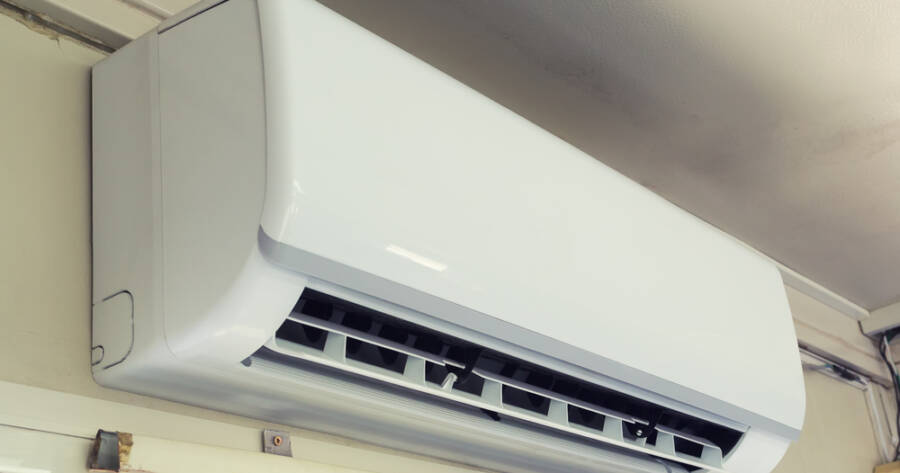As temperatures rise, finding an effective and efficient way to cool your home becomes a top priority. Ductless air conditioners, also known as mini-split systems, have emerged as a popular choice for homeowners looking for a versatile cooling solution. Offering a range of potential benefits, from energy efficiency to easier installation, these systems could be a great option for cooling specific rooms or entire homes. But what makes ductless systems stand out? Let’s explore.
What Are Ductless Air Conditioners?
Ductless air conditioners are innovative cooling systems that, as the name suggests, don’t rely on traditional ductwork to circulate air. Instead, they consist of an outdoor unit and one or more indoor units that are typically mounted on walls. These units are connected via refrigerant lines and require only a small hole in the wall for installation.
Unlike central air systems that cool an entire home uniformly, ductless systems are designed to cool individual zones or rooms. This design makes them a flexible solution for many settings, such as older homes without ductwork, new additions, or spaces with inconsistent temperatures.
How Do Ductless Systems Work?
The technology behind ductless air conditioners is both simple and efficient. The outdoor unit compresses and circulates refrigerant, which absorbs heat from the indoor space via the indoor unit.
The warm air is then expelled outside while cool air is delivered back into the room. This direct cooling method eliminates the energy losses that can occur with ductwork, where air may leak or lose temperature during distribution.
Advantages of Ductless Air Conditioners
Energy Efficiency
One of the most frequently cited advantages of ductless air conditioners is their potential energy efficiency. Because they cool specific areas, they may use less energy compared to central systems that condition an entire home. Some models also feature advanced inverter technology, which allows the system to adjust its output to match the cooling needs of the space, potentially reducing energy consumption.
Zoned Comfort
Ductless systems are ideal for creating personalized comfort zones. Each indoor unit operates independently, allowing occupants to set different temperatures for different rooms. This could be particularly beneficial for families with varying temperature preferences or for spaces like guest rooms that don’t require constant cooling.
Easy Installation
The absence of ductwork makes ductless systems relatively easy to install compared to central air conditioning. For homes without existing ducts, installing central air can be an invasive and expensive process. Ductless systems require only a small opening in the wall and can often be installed in a single day by a qualified professional.
Potential Cost Savings
While ductless systems can have a higher upfront cost, their energy efficiency may lead to lower utility bills over time. Additionally, some homeowners might qualify for rebates or tax incentives when purchasing energy-efficient models, depending on their location and the specific unit they choose.
Considerations Before Choosing a Ductless Air Conditioner
Initial Cost
Though ductless systems may offer long-term savings, the initial investment can be significant. Homeowners should consider their budget and cooling needs to determine if the potential energy savings offset the upfront cost.
Aesthetic Concerns
Some individuals may find the wall-mounted indoor units less visually appealing compared to hidden ductwork or other cooling options. However, modern designs aim to blend seamlessly with interiors, and there are ways to position units discreetly.
Maintenance Requirements
Like any cooling system, ductless air conditioners require regular maintenance to operate efficiently. Filters need to be cleaned or replaced frequently, and professional servicing may be required for optimal performance.
Who Can Benefit Most From Ductless Systems?
Ductless air conditioners could be an excellent option for a variety of situations. Homes without existing ductwork are prime candidates, as are older homes where installing ductwork might not be feasible. These systems are also worth considering for home additions, garages, or other spaces that are difficult to cool with traditional methods.
Additionally, individuals who value precise temperature control might find ductless systems appealing. They’re also a potential choice for those looking to improve energy efficiency or reduce their carbon footprint, especially when paired with renewable energy sources.
Are Ductless Systems the Right Fit for You?
Deciding whether to invest in a ductless air conditioner depends on several factors. Evaluating your cooling needs, budget, and home’s layout can help determine if this system aligns with your goals. Consulting a professional HVAC contractor is often a good step, as they can assess your space and provide tailored recommendations.
Learn More Today!
Ductless air conditioners present a compelling option for homeowners seeking an efficient and flexible cooling solution. By eliminating the need for ductwork, these systems could offer a more streamlined installation process and reduce energy loss. Their ability to create individualized comfort zones and adapt to various spaces makes them versatile for a range of cooling needs.
While they may not be the right fit for everyone, the benefits of ductless air conditioners make them worth considering, especially for homes with unique cooling challenges. With proper maintenance and thoughtful installation, they have the potential to enhance comfort and efficiency in your living space. If you’re exploring new ways to stay cool, ductless air conditioning might just be the solution you’ve been looking for.

